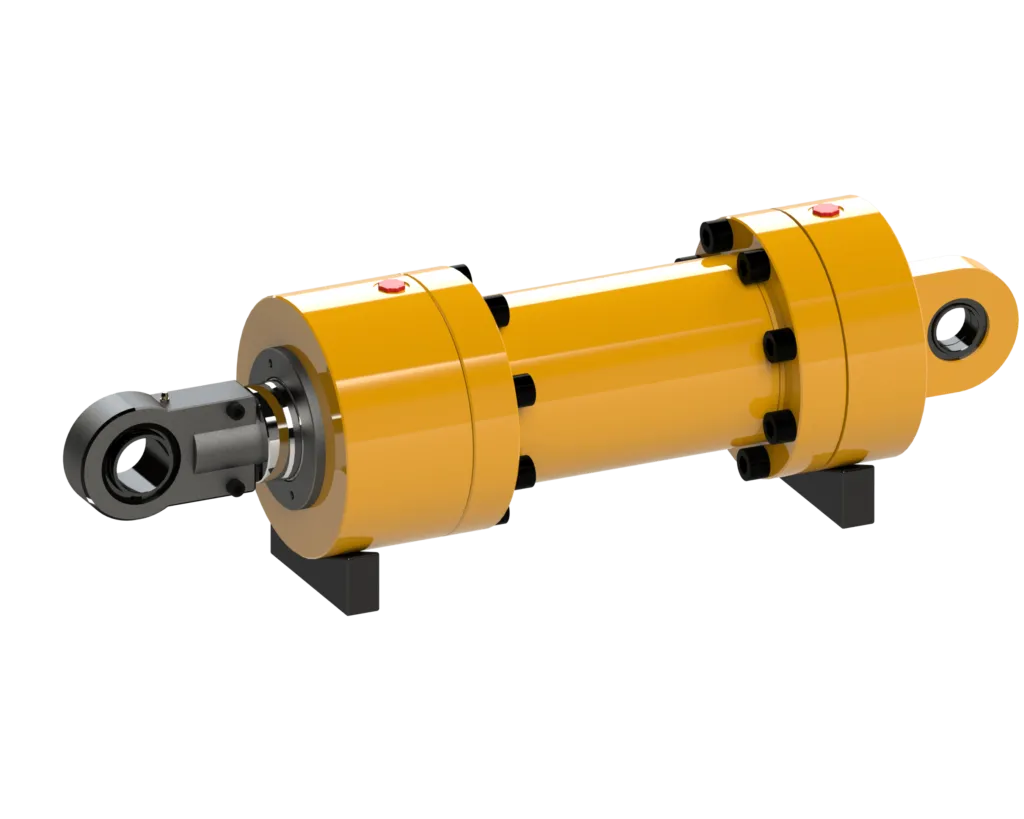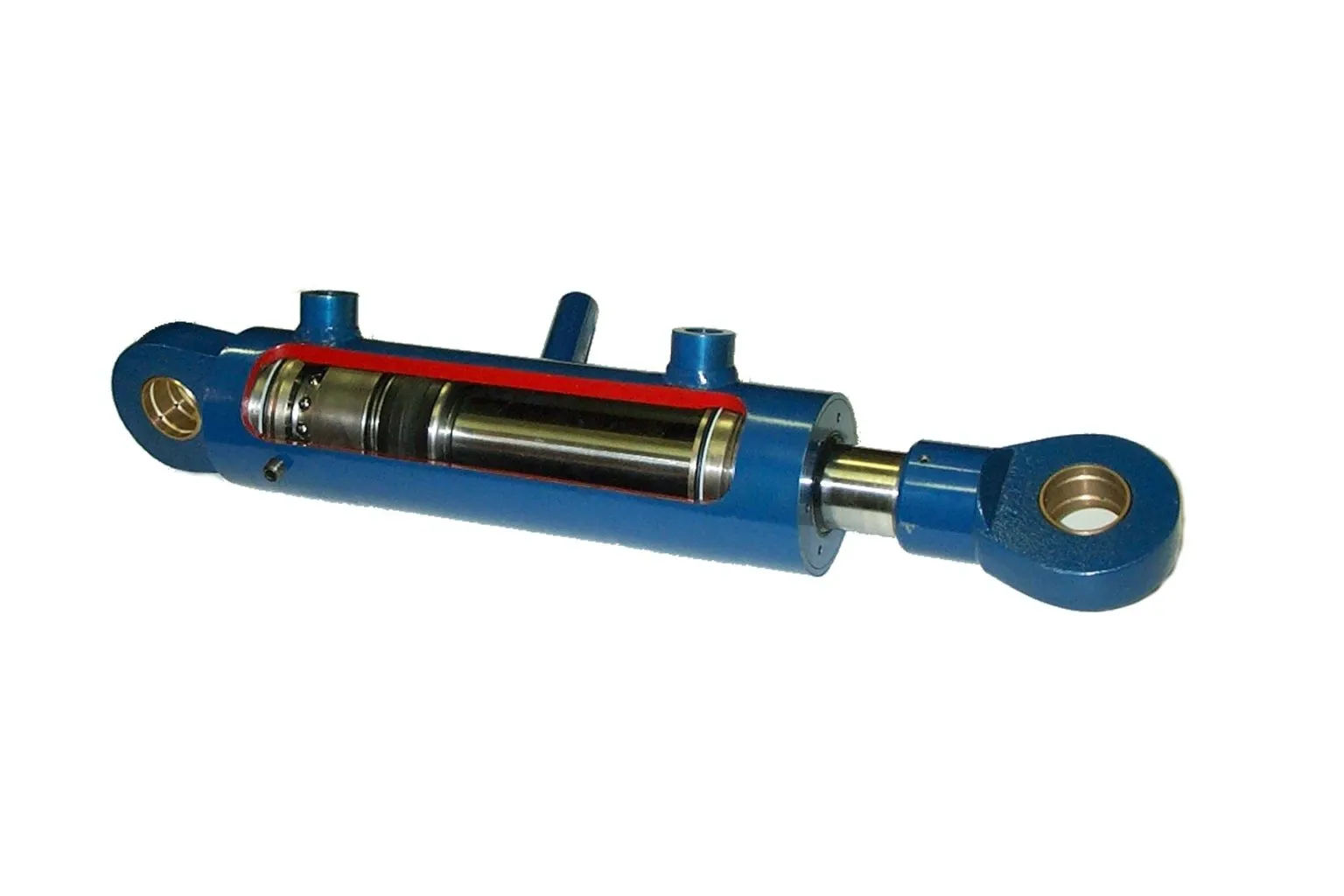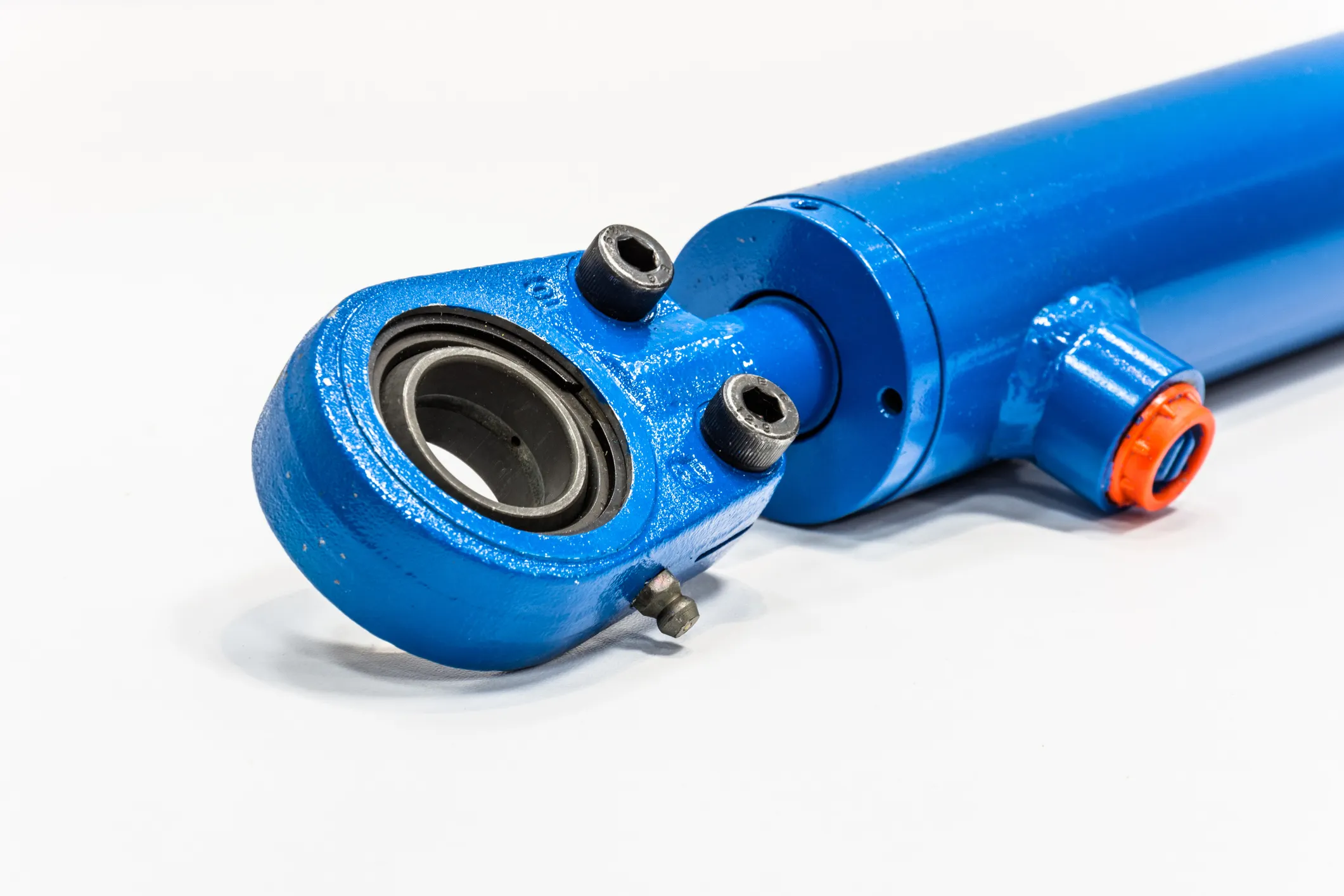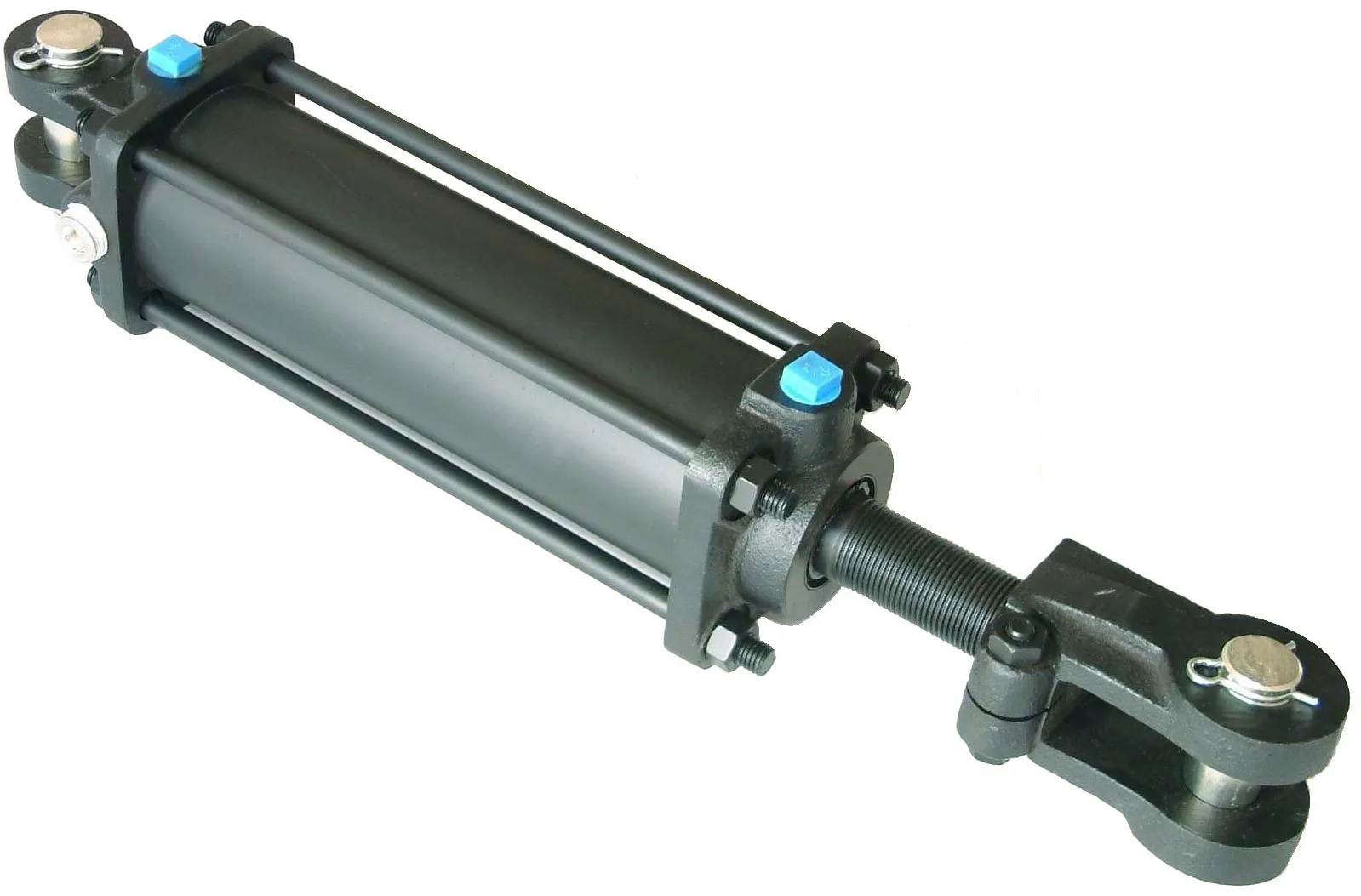Exploring Mill-Type Welded Hydraulic Cylinders For Industrial Automation Robotic Manipulators
Introduction
In the realm of industrial automation and robotic manipulators, mill-type welded hydraulic cylinders play a crucial role in providing the necessary power and precision. These specialized hydraulic cylinders are designed to withstand high loads and harsh conditions, making them ideal for a wide range of applications.
Design Characteristics
When it comes to the design of mill-type welded hydraulic cylinders, several key components must be considered. The shell, inner cylinder, piston, and other elements are meticulously crafted to ensure strength, durability, and optimal performance. Welding technology is a critical factor in the manufacturing process, as it directly impacts the quality and reliability of the cylinder components.
Manufacturing Process
The manufacturing process of mill-type welded hydraulic cylinders involves precision welding techniques to create a seamless and robust structure. The welding technology used must meet stringent standards to guarantee the integrity of the cylinder components. Emphasis is placed on achieving exceptional strength and performance through advanced welding methods.

Working Principle
The working principle of mill-type welded hydraulic cylinders is based on the conversion of hydraulic energy into mechanical force. These cylinders utilize hydraulic fluid to generate linear motion, which is essential for powering industrial automation systems and robotic manipulators.
Types and Configurations

There are three main types of mill-type welded hydraulic cylinders, each with unique configurations to suit different applications. These cylinders are designed to provide precise control and reliable performance in various industrial settings.
Single-Acting Cylinders
Single-acting cylinders exert force in one direction, making them ideal for applications that require simple linear movement. These cylinders are commonly used in conveyor systems, material handling equipment, and other automated processes.
Double-Acting Cylinders
Double-acting cylinders can generate force in both directions, allowing for more complex movements and increased versatility. These cylinders are frequently employed in industrial robots, machine tools, and hydraulic presses.
Telescopic Cylinders
Telescopic cylinders feature multiple stages that can extend and retract, providing adjustable stroke lengths for precise positioning. These cylinders are commonly found in dump trucks, cranes, and other heavy-duty equipment.
Advantages
Mill-type welded hydraulic cylinders offer several advantages, including high load capacity, long stroke lengths, and rugged durability. These cylinders are known for their exceptional performance and reliability in demanding industrial environments.
High Load Capacity
The robust design of mill-type welded hydraulic cylinders allows them to handle heavy loads with ease, making them suitable for a wide range of industrial applications.
Long Stroke Length
With extended stroke lengths, these cylinders can provide precise and efficient motion control, enhancing the performance of automated systems and robotic manipulators.
Rugged Durability
Mill-type welded hydraulic cylinders are built to withstand harsh operating conditions, ensuring long-lasting performance and minimal maintenance requirements.
Performance Characteristics
The performance characteristics of mill-type welded hydraulic cylinders are defined by factors such as working pressure, load capacity, speed, and responsiveness. Selecting the right cylinder size and configuration is crucial for achieving optimal performance in industrial automation and robotic applications.
Working Pressure
Mill-type welded hydraulic cylinders are designed to operate within specific pressure ranges, depending on the application requirements. Understanding the working pressure of the cylinder is essential for ensuring safe and efficient operation.
Load Capacity
The load capacity of a hydraulic cylinder is determined by various factors, including the size, design, and materials used in its construction. Ensuring that the cylinder can handle the required loads is essential for preventing system failures and downtime.
Speed and Responsiveness
Speed and responsiveness are critical performance factors for mill-type welded hydraulic cylinders, as they directly impact the efficiency and accuracy of industrial automation processes. Selecting cylinders with the appropriate speed and responsiveness characteristics is vital for achieving optimal performance.
Application Industries
Mill-type welded hydraulic cylinders are widely used in various industries, including heavy equipment, industrial machinery, and mining operations. These cylinders play a vital role in powering hydraulic systems and providing reliable motion control in a range of applications.
Heavy Equipment
In heavy equipment applications, mill-type welded hydraulic cylinders are used to provide the necessary power and precision for lifting, pushing, and positioning heavy loads. These cylinders are essential components in construction machinery, agricultural equipment, and material handling systems.
Industrial Machinery
Industrial machinery relies on mill-type welded hydraulic cylinders for efficient motion control and force generation. These cylinders are commonly used in manufacturing equipment, processing machinery, and automated production systems to ensure smooth and reliable operation.
Mining Operations
Mill-type welded hydraulic cylinders are integral to mining operations, where they are employed in excavation, material handling, and drilling equipment. These cylinders withstand extreme conditions and heavy loads, making them essential components in the mining industry.

Design Considerations and Selection Criteria
When selecting mill-type welded hydraulic cylinders for industrial automation and robotic applications, several design considerations and selection criteria must be taken into account. Bearing capacity, sealing, durability, safety, and maintainability are critical factors that influence the performance and reliability of these cylinders.
Bearing Capacity

The bearing capacity of a hydraulic cylinder determines its ability to withstand loads and pressures without failure. Selecting cylinders with the appropriate bearing capacity is essential for ensuring safe and efficient operation in industrial applications.
Sealing and Lubrication
Proper sealing and lubrication are essential for maintaining the performance and longevity of mill-type welded hydraulic cylinders. Using high-quality seals and lubricants, along with regular maintenance and inspection, can help prevent leaks, wear, and other issues that may affect cylinder performance.
Installation Guide
Proper installation of mill-type welded hydraulic cylinders is crucial for ensuring optimal performance and reliability. Following the manufacturer’s guidelines and best practices for installation can help prevent damage, leaks, and other issues that may arise during operation.
Maintenance Tasks
Regular inspection, proper lubrication, and seal replacement are essential maintenance tasks for mill-type welded hydraulic cylinders. By following recommended maintenance procedures and addressing issues promptly, users can prolong the service life of their cylinders and prevent costly repairs.
Regular Inspection
Regular inspection of mill-type welded hydraulic cylinders helps identify potential issues early and prevent system failures. Inspecting the cylinder for leaks, damage, and wear can help ensure safe and efficient operation.
Proper Lubrication
Proper lubrication is essential for reducing friction and wear in mill-type welded hydraulic cylinders. Using the recommended hydraulic oil and lubricating the cylinder components regularly can help maintain optimal performance and extend the service life of the cylinder.
Seal Replacement
Replacing worn or damaged seals is essential for maintaining the integrity of mill-type welded hydraulic cylinders. Seals play a crucial role in preventing leaks and contamination, so regular replacement and inspection are necessary to ensure reliable operation.
Safety Considerations
When using mill-type welded hydraulic cylinders in industrial automation and robotic applications, safety measures must be prioritized to prevent accidents and injuries. Proper installation, maintenance, and operation practices can help ensure the safe and efficient use of these cylinders in various settings.
Fault Diagnosis and Common Problems
Diagnosing faults and addressing common problems in mill-type welded hydraulic cylinders is essential for maintaining optimal performance and reliability. Understanding the potential issues that may arise and implementing effective troubleshooting solutions can help minimize downtime and prevent costly repairs.
Key Questions and Answers
1. What are the advantages of mill-type welded hydraulic cylinders?
Mill-type welded hydraulic cylinders offer high load capacity, long stroke lengths, and rugged durability, making them ideal for industrial automation and robotic applications.
2. What are the main components of a mill-type welded hydraulic cylinder?
The main components of a mill-type welded hydraulic cylinder include the shell, inner cylinder, piston, seals, and other elements that work together to provide reliable motion control and force generation.
3. How do mill-type welded hydraulic cylinders differ from other types?
Mill-type welded hydraulic cylinders are characterized by their robust design, high load capacity, and precise motion control capabilities, making them ideal for demanding industrial applications that require reliable performance and durability.
Long Tail Keywords
1. High-Performance Mill-Type Welded Hydraulic Cylinders
High-performance mill-type welded hydraulic cylinders are designed to deliver exceptional power and precision for industrial automation and robotic manipulators, ensuring reliable performance in demanding applications.
2. Customized Mill-Type Welded Hydraulic Cylinder Solutions
Customized mill-type welded hydraulic cylinder solutions are tailored to meet specific application requirements, providing optimal performance and efficiency in various industrial settings.
3. Advanced Mill-Type Welded Hydraulic Cylinder Technology
Advanced mill-type welded hydraulic cylinder technology incorporates state-of-the-art materials and manufacturing processes to deliver superior performance and durability in industrial automation and robotic applications.
Our Company
As a leading hydraulic cylinder replacement manufacturer, our company offers a comprehensive product line designed to meet the needs of industrial automation and robotic applications. With a focus on quality, performance, and reliability, we have established ourselves as a trusted provider of mill-type welded hydraulic cylinders in the domestic and foreign markets.
Our company is committed to delivering professional and customized services to our customers, ensuring that their specific requirements are met with precision and efficiency. With international certifications and a dedication to excellence, we strive to exceed expectations and deliver innovative solutions for hydraulic system needs.
From our cutting-edge production equipment to our reliable after-sales service, we are dedicated to providing the highest quality products and support to our customers. Whether you require standard hydraulic cylinders or custom solutions, our team is here to help you find the right solution for your industrial automation and robotic applications.
Author: lyl
